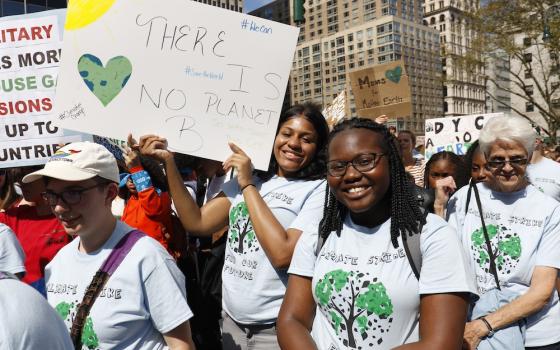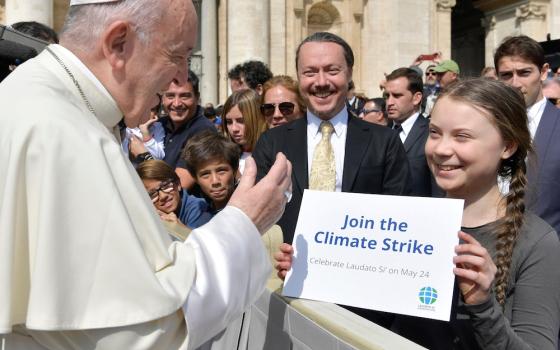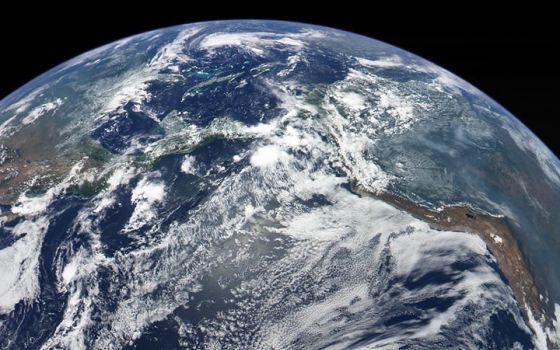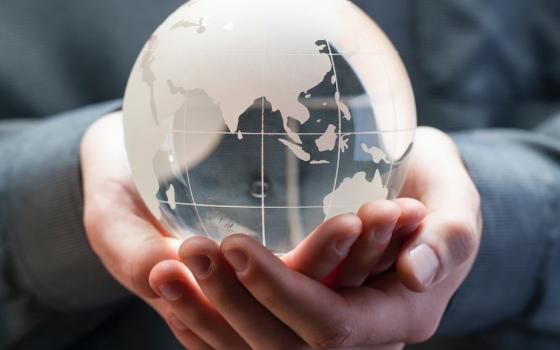People wade through floodwaters in La Lima, Honduras, in November 2020, in the wake of Hurricane Eta. (CNS photo/Jorge Cabrera, Reuters)
Editor's note: In his Lenten "Reflections on the Care of Creation," Fr. Emmet Farrell examines our impact on the planet and our responsibility, as people of faith, for our common home. You can sign up here to receive Fr. Farrell's reflections in your inbox every Monday, Wednesday and Friday from Feb. 17 to April 2, and you can view the entire series here.
See:
Scientists are cautious about linking individual major storms to climate change, but there are indications that extreme weather is becoming more frequent and more severe, as forecast by climate models, Examples are the 2017 hurricane season, which included Harvey, Irma, Maria and Ophelia, and 2020, when Eta and Iota struck Central America.
What we do know is this: Moist air over warm ocean water is hurricane fuel.
"Everything in the atmosphere now is impacted by the fact that it's warmer than it's ever been," Brandon Miller, CNN's senior meteorologist, has said. "There's more water vapor in the atmosphere. The ocean is warmer. And all of that really only pushes the impact in one direction, and that is worse: higher surge in storms, higher rainfall in storms."
The U.S. National Oceanic and Atmospheric Administration has concluded that "it is likely that greenhouse warming will cause hurricanes in the coming century to be more intense globally and have higher rainfall rates than present-day hurricanes."
Advertisement
Judge:
The majority of people living on our planet profess to be believers. This should spur religions to dialogue among themselves for the sake of protecting nature, defending the poor, and building networks of respect and fraternity. … The gravity of the ecological crisis demands that we all look to the common good, embarking on a path of dialogue which demands patience, self-discipline and generosity. (Laudato Si', 201)
Authoritative reports follow in rapid succession, warning of the dire consequences of climate change and global warming caused by human activity. What is now urgently needed is a dramatic change in the way the human race conducts its affairs and Muslims, who constitute on-fifth of the world's population, can make a big difference if only they take warnings seriously and heed the teachings of their faith. (Muslim Green Guide to Reducing Climate Change, Islamic Foundation for Ecology and Environmental Sciences)
In my view, climate change is the most severe problem that we are facing today, more serious even than the threat of terrorism. (Sir David King, British government's chief scientific adviser)
Act:
- Look for a presentation about changing weather patterns.
- Talk about the ecology crisis in terms of our "common home."
- Organize a car pool for school or church attendance.







